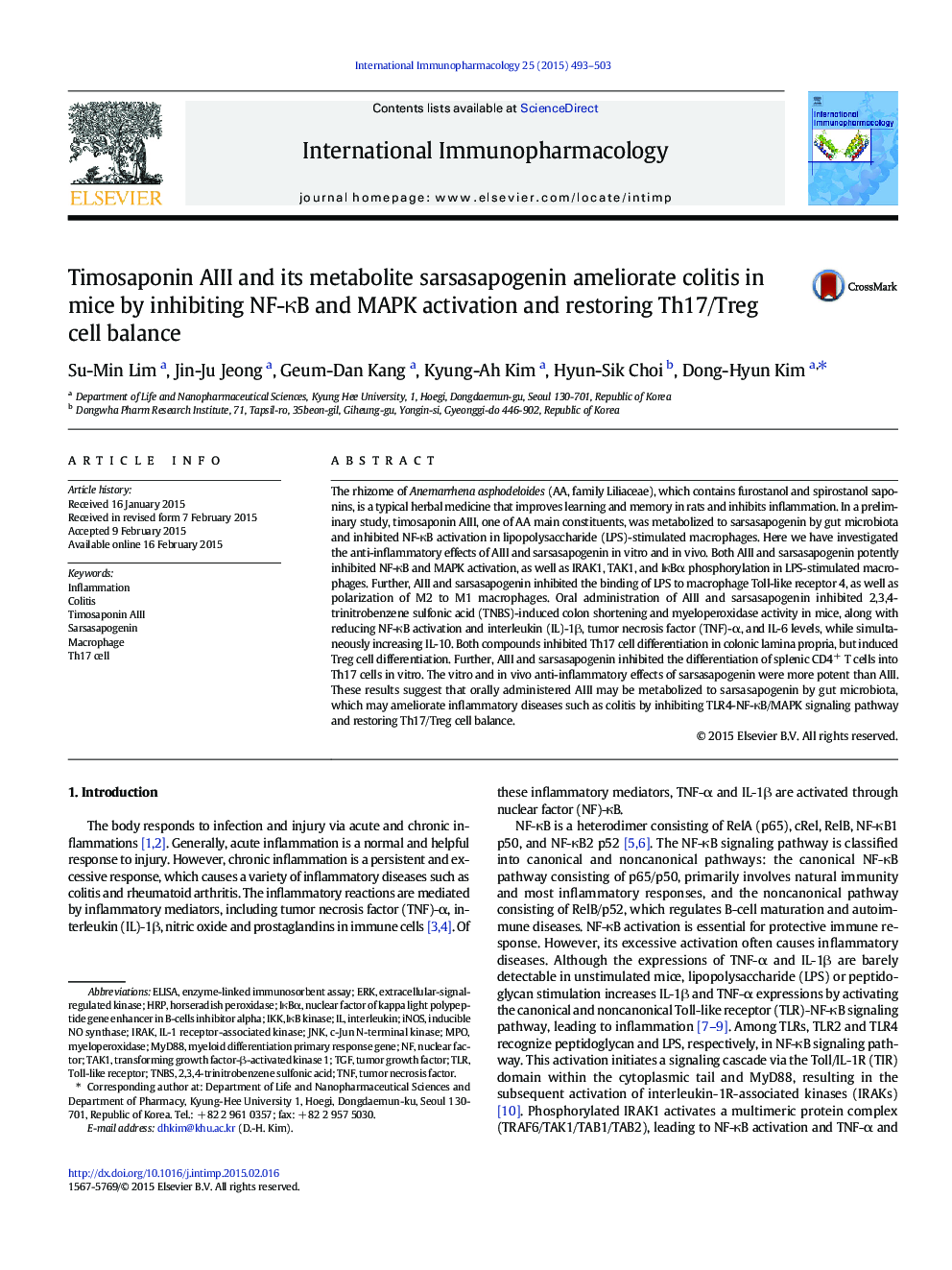| کد مقاله | کد نشریه | سال انتشار | مقاله انگلیسی | نسخه تمام متن |
|---|---|---|---|---|
| 2540601 | 1122600 | 2015 | 11 صفحه PDF | دانلود رایگان |

• Timosaponin AIII was metabolized to sarsasapogenin (SG) by gut microbiota.
• AIII and SG inhibited NF-κB activation by inhibiting LPS binding to TLR4 in macrophages.
• AIII and SG suppressed NF-κB and MAPK activation in TNBS-induced colitic mice.
• AIII and SG improved TNBS-induced Th17/Treg cell imbalances.
• Overall, anti-inflammatory effect of SG was more potent than that of AIII.
The rhizome of Anemarrhena asphodeloides (AA, family Liliaceae), which contains furostanol and spirostanol saponins, is a typical herbal medicine that improves learning and memory in rats and inhibits inflammation. In a preliminary study, timosaponin AIII, one of AA main constituents, was metabolized to sarsasapogenin by gut microbiota and inhibited NF-κB activation in lipopolysaccharide (LPS)-stimulated macrophages. Here we have investigated the anti-inflammatory effects of AIII and sarsasapogenin in vitro and in vivo. Both AIII and sarsasapogenin potently inhibited NF-κB and MAPK activation, as well as IRAK1, TAK1, and IκBα phosphorylation in LPS-stimulated macrophages. Further, AIII and sarsasapogenin inhibited the binding of LPS to macrophage Toll-like receptor 4, as well as polarization of M2 to M1 macrophages. Oral administration of AIII and sarsasapogenin inhibited 2,3,4-trinitrobenzene sulfonic acid (TNBS)-induced colon shortening and myeloperoxidase activity in mice, along with reducing NF-κB activation and interleukin (IL)-1β, tumor necrosis factor (TNF)-α, and IL-6 levels, while simultaneously increasing IL-10. Both compounds inhibited Th17 cell differentiation in colonic lamina propria, but induced Treg cell differentiation. Further, AIII and sarsasapogenin inhibited the differentiation of splenic CD4+ T cells into Th17 cells in vitro. The vitro and in vivo anti-inflammatory effects of sarsasapogenin were more potent than AIII. These results suggest that orally administered AIII may be metabolized to sarsasapogenin by gut microbiota, which may ameliorate inflammatory diseases such as colitis by inhibiting TLR4-NF-κB/MAPK signaling pathway and restoring Th17/Treg cell balance.
Figure optionsDownload as PowerPoint slide
Journal: International Immunopharmacology - Volume 25, Issue 2, April 2015, Pages 493–503